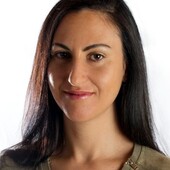
Amy Kahn
Research Specialist at the Centre for Science, Technology and Innovation Indicators, Human Sciences Research Council
Less ![]()

Amy King
Lecturer in Modern European History, University of Bristol
Amy King is a lecturer in Modern European History at the University of Bristol where she specialises in the history and memory of Italian fascism, antifascism and neofascism. Her published research focuses on political martyrdom in far-right communities, and she has also published on the memory of the socialist leader Giacomo Matteotti.
Her first book, 'The Politics of Sacrifice: Remembering Italy's Rogo di Primavalle', examines the ways memory of an arson attack on a far-right family in 1973 has evolved over the past fifty years. It will be published by Palgrave Macmillan in January 2024.
Amy was previously a Pilkington Fellow at the British School at Rome, and a fellow at the Kluge Center, Library of Congress.
Less ![]()
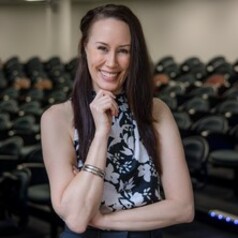
Amy Kirkegaard
Postdoctoral Research Fellow, School of Human Movement and Nutrition Sciences, The University of Queensland
Dr Amy Kirkegaard
Postdoctoral Research Fellow
School of Human Movement and Nutrition Sciences
Faculty of Health and Behavioural Sciences
University of Queensland
Overview
Research Interests
Quality and value-based primary care
Advancing health and wellbeing using complexity and systems thinking
Qualifications
Doctor of Philosophy, Griffith University
Less ![]()

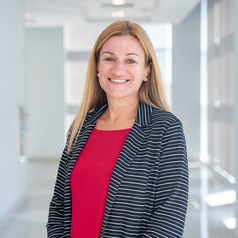
Amy Lavin
Associate Professor of Practice, Fox School of Business and Management, Temple University
Amy A. Lavin is an Associate Professor of Management Information Systems at the Fox School of Business, Temple University. Amy teaches courses on information systems and data analytics, user experience and business intelligence.
Prior to joining the Fox School, she served as a technical training manager for Temple University. In this role, she managed the launch and training for the major software implementations of Banner and Concur and the implementation of Salesforce.com. She also previously worked as technical team manager and senior functional consultant with SunGard Higher Education, and as a software licensing manager at Temple.
Amy completed her Ed.D. in education administration from Temple University’s College of Education in 2019. She earned her Master of Business Administration and Bachelor of Business Administration degrees from the Fox School. She also holds a direct marketing certification from Pennsylvania State University.
Less ![]()
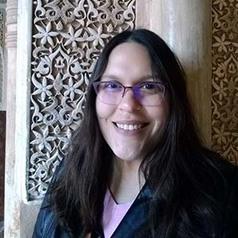
Amy Lawton
Research Manager, Chaplaincy Innovation Lab, Brandeis University
Amy completed her PhD in sociology at the University of Connecticut. Her research interests focus on the potential and paradox of religious pluralism in the United States, the cultural production of the sacred, and meaning-making in both religious and (non)religious belief systems. Her dissertation examined the practice of donor memorial ceremonies, which are memorial services held by medical schools to commemorate and honor whole-body anatomical donors.
Less ![]()
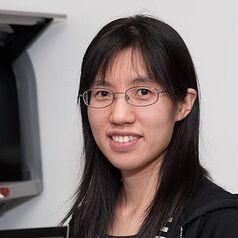
Amy Lien
Assistant Professor of Physics, University of Tampa
My research interests lie in understanding how the universe begins and evolves through the most energetic astrophysical explosions: gamma-ray bursts (GRBs), supernovae, merging neutron stars and black holes. My main research utilizes GRBs detected by the Neil Gehrels Swift Observatory, a multi-wavelength space telescope dedicated to studying GRBs and the transient sky. GRBs are seen from within our neighborhood of galaxies to the early universe when the rst stars were expected to form (Fig. 1). I use GRBs to explore the history of the universe, and study how nature can form these energetic bursts from either the collapse of massive stars or merging of compact objects like neutron stars and black holes.
Less ![]()
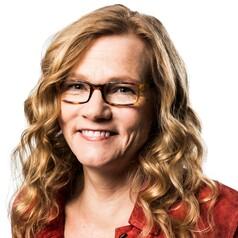
Amy Luers
Affiliate Professor, Geography, Planning and Environment, Concordia University
Amy Luers is affiliate professor at Concordia University and Global Lead for Sustainability Science at Microsoft. Previously, she was Executive Director for Future Earth, the Assistant Director for Climate Resilience and Information at the White House Office of Science and Technology Policy (OSTP), Senior Environment Program Manager at Google. Before that she led the climate program at the Union of Concerned Sciences California Office. Luers started her career in Latin America as co-founder and the first executive director of Agua Para La Vida (Water for Life), working with rural communities to enhance access to potable water.
She has published in both academic journals and in the popular media on issues related to vulnerability to global environmental change, data, sustainability, climate policy, and science communication. A respected scientist and data innovator, Luers has been recognized as a PopTech fellow, a Switzer Environmental Fellow, Heinz Environmental Scholar, and has been a leader in advising the California state government, the White House, and the United Nation on topics related to the intersection of research, policy and data. She is a member of the Council on Foreign Relations and has served on committees of the National Academies of Sciences. Luers holds a Ph.D. in environmental science and an M.A. in international policy studies, from Stanford University; a B.S. and M.S. in environmental systems engineering from Humboldt State University; and a B.A. in philosophy from Middlebury College.
Less ![]()
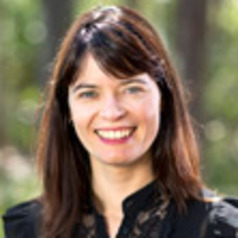
Amy Maguire
Senior Lecturer in International Law, University of Newcastle
I am a senior lecturer in international law at the University of Newcastle Law School. Since 2005, I have been engaged in research relating to the collective human right to self-determination, with particular focus on Indigenous peoples in Australia and Irish nationalists in the North of Ireland. My doctoral research explores the self-determination claims of peoples who live a contemporary colonial experience, and I argue that the right of self-determination retains a mission of decolonisation in the twenty-first century.
My other research interests include:
- Human rights and climate change adaptation
- Refugee rights
- Indigenous rights under international and domestic law
- Indigenisation of curriculum
- Domestic implementation of international law
- Peace and conflict studies
Please view my research on my SSRN Author page:
http://ssrn.com/author=1688434
Less ![]()
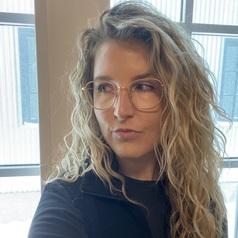
Amy Mazowita
PhD Candidate & 2023-2024 Public Scholar, Concordia University
Amy Mazowita is a SSHRC-funded PhD Candidate at Concordia University and a 2023-2024 Concordia Public Scholar. Her doctoral research is situated at the intersections of Critical Disability Studies, Comics Studies, and Social Media Studies. Amy's project is focused on Instagram-based mental health/illness comics, and is especially interested in the grassroots communities and networks of care that form in response to these digital texts. Amy is also interested in the Environmental Humanities and is currently working on a research-creation project that traces the affects and effects of wildfires in Manitoba's Whiteshell Provincial Park. This project is part of the SSHRC-funded "Mobilizing Disability Survival Skills for the Urgencies of the Anthropocene" project (P.I. Arseli Dokumaci). Amy is a core member of Concordia's Access in the Making Lab, a member of Concordia's Feminist Media Studio, a TA in the Department of Communication Studies, and the Communications Representative for the Communication Studies Doctoral Student Association.
Less ![]()
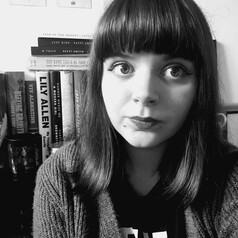
Amy McCarthy
PhD Researcher in English Literature, York St John University
I am a PhD researcher in English Literature at York St John University. My research focuses on space and memory in women's indie music memoirs. In 2018, I was the winner of the Wilko Jonson Writing Award. My work has been published in The Line Between Two Towns (2017), Fan Club (2019), and Venue Stories (2023).
Less ![]()
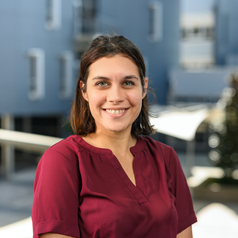
Amy McQuire
Indigenous Post-Doctoral Fellow: Faculty of Creative Industries, Education & Social Justice, School of Communication, Queensland University of Technology
Darumbal and South Sea Islander academic, writer and journalist. Amy recently completed a PhD into Media Representations of Violence against Aboriginal Women at the University of Queensland. She has over 17 years experience working in Aboriginal and independent media. Her investigative podcast 'Curtain the Podcast', co-hosted with Martin Hodgson, delves into the wrongful conviction of Aboriginal man Kevin Henry. She has written for numerous publications including Meanjin, Griffith Review, New York Times, Washington Post, Vogue, Marie Claire, and BuzzFeed Australia amongst others. Her first non-fiction book "Black Witness" is due to be published in 2024 by University of Queensland Press, and her first children's book Day Break was published by Hardie Grant Children's Publishing in 2021. Amy's interest is in building a sovereign black media, writing on disappeared Aboriginal women, wrongful convictions and the brutality of the justice system. She is currently an Indigenous Post-Doctoral Fellow at the QUT School of Communications, under the Digital Research Media Centre and Centre for Justice.
Less ![]()
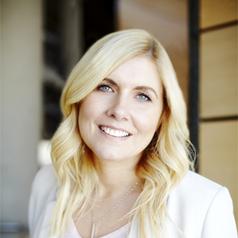
Amy Muise
Associate professor, Psychology, York University, Canada
Dr. Amy Muise is an Associate Professor and Director of the Sexual Health and Relationships (SHaRe) Lab at York University. Her research is focused on understanding the factors that help couples maintain romantic relationships and sexual desire over time.
Less ![]()

Amy Mullens
Professor and Clinical & Health Psychologist, University of Southern Queensland
Professor Amy Mullens (she/her) is a Clinical & Health Psychologist (25+ years of experience) and a Professor at the University of Southern Queensland (UniSQ), Australia. Amy’s research expertise is in early intervention and health promotion with people living with chronic conditions (e.g., HIV, Hepatitis, mental health), and working in partnership with priority and underserved communities (e.g., LGBTIQIA+, culturally and linguistically diverse). Amy leads the UniSQ Centre for Health Research ‘Health Equity’ research theme—which represents an interdisciplinary program of research; and co-leads numerous national and international collaborations and externally funded projects in the areas of health, wellbeing and equity. Further, Amy provides clinical and health psychology consultancy services and clinical supervision throughout Australia and internationally.
Less ![]()
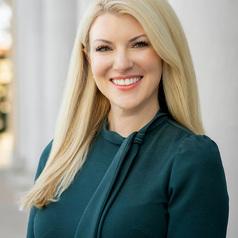
Amy Parsons
President, Colorado State University
Amy Parsons is the 16th President of Colorado State University. Prior to being named CSU President in 2023, Parsons served for 17 years in various senior executive leadership roles at CSU and the CSU System. She combines her higher education background with private sector experience, as well as a background in law. Parsons served as executive vice chancellor of the CSU System, vice president for university operations at CSU, deputy general counsel, and associate legal counsel at CSU.
She began her career as a litigation attorney for Denver-firm Brownstein, Hyatt, & Farber (now Brownstein, Hyatt, Farber, Schreck). Parsons currently serves on the NCAA Committee for Infractions, the Salazar Center for North American Conservation External Advisory Board, and the Colorado Business Roundtable Board of Directors.
Parsons holds a bachelor’s degree in political science from CSU and a Juris Doctorate from the University of Colorado. She was born in Colorado and grew up in Wyoming.
Less ![]()

Amy Paterson
DPHIL STUDENT, University of Oxford
Amy is a medical doctor from KwaZulu-Natal, South Africa, with a masters in Global Surgery from the University of Cape Town. She is currently pursuing a DPhil (PhD) at the University of Oxford. Her studies in Oxford are supported by a Rhodes Scholarship.
Less ![]()
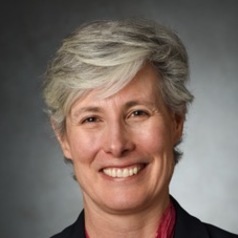
Amy Pritchett
Professor of Aerospace Engineering, Penn State
Amy Pritchett is Department Head of Aerospace Engineering at Penn State.
Her research topics include autonomous flight and UAVs, vehicle dynamics and controls, and vehicle systems engineering.
Pritchett studies the intersection of technology, humans and safety in dynamic, time-critical and safety-critical environments. These include human-robot interaction in space exploration, human-autonomy teaming in aviation, novel flight deck designs, and manual control.
Less ![]()

Amy Rand
Assistant professor, Environmental Chemistry and Toxicology, Carleton University
Our research centers on basic and applied questions related to contaminants in the environment. We use tools from environmental chemistry and toxicology to understand (1) where contaminants come from and where they go, (2) who gets exposed, and (3) the biological implications after exposure.
We explore routes of exposure to per- and polyfluoroalkyl substances (PFAS), a diverse class of over 8000 chemicals. PFAS have strong carbon-fluorine bonds that make them useful in many products, imparting grease- and water-resistance. But the same properties make some PFAS environmentally persistent and bioaccumulative.
Due to the structural diversity of PFAS, we use them as chemical probes to understand the underpinnings of biological transformation pathways. We elucidate enzymes and organisms responsible for transformation to explore biological mechanisms and conditions that may reduce the burden of PFAS contamination.
We also use biological models to study how exposure to one or more pollutants impacts signaling pathways involved in cell stress. Analytical chemistry and biochemical tools are coupled to gain insights into the mechanism of action of pollutants and their biological targets.
We are committed to doing environmental research with broad impact and for use in management decisions. To do so, we frequently collaborate with other academics, non-profit organizations, and government agencies.
Less ![]()

Amy Reynolds
Associate Professor in Clinical Sleep Health, Flinders University
Associate Professor Amy Reynolds is a clinical epidemiologist and provisional psychologist with research expertise in the relationships between non-standard work schedules (particularly shift work), health and safety. She is the current co-lead of the insomnia, shift work and body clock disruption theme at FHMRI Sleep Health (formerly Adelaide Institute of Sleep Health).
Her key research focus is the experiences of shift workers living with sleep problems, many of which go undiagnosed and untreated for extended periods of time. These include obstructive sleep apnoea, insomnia, and shift work disorder. She uses mixed research methodologies in her research program, including working with large datasets, such as the multigenerational Raine Study, qualitative approaches, and intervention trials.
Less ![]()
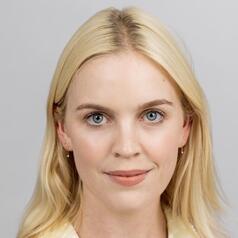
Amy Tapsell
Research Officer, University of Sydney
Amy Tapsell is a Research Officer at the University of Sydney for the Gender Equality in Working Life Research Initiative (GEWL). Her current research (funded by an Australian Research Council Linkage Project) investigates how gendered dynamics and inequalities play out in two distinct workplace contexts (the retail industry and legal profession). Amy holds a Bachelor of Arts in Psychology and a Master of Public Health (Health Promotion) from the University of Wollongong. She has worked in research (with her research work spanning across the disciplines of social sciences, health, and psychology), as well as in the government sector.
Less ![]()

Amy Thomasson
Associate Lecturer of Law, The University of Western Australia
Amy is an Associate Lecturer at the UWA Law School, teaching Law for Everyday Lives and Family Law. She was previously an Associate at the Supreme Court of Western Australia - Court of Appeal and practised as a family lawyer. Amy has extensive research experience in health law & policy (including public health and reproductive technology).
As well as teaching at UWA, Amy is involved in the legal stream of the Mandate Evaluation (MandEval) project, funded by the Medical Research Future Fund. MandEval is an interdisciplinary research project which aims to guide policy for future pandemic preparedness and routine adult and childhood immunisation programs.
Less ![]()
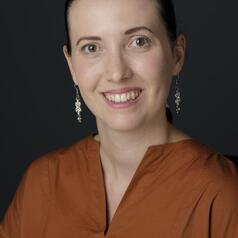
Amy Thomson
PhD candidate, Senior Research Assistant, School of Education, The University of Queensland
Amy Thomson is a Mandandanji woman and Doctorate of Philosophy student enrolled in the School of Education at the University of Queensland. Amy works as a Senior Research assistant and previously worked as secondary English and Music teacher. Amy was Chief Investigator in the Australian Government’s Diversity in STEM review: “Big mob STEM it up!” project and is an Associate Investigator in UQ’s ARC Centre of Excellence for Indigenous Futures. Amy’s PhD research is about how the principles of self-determination and co-design can influence the way English educators embed Aboriginal and Torres Strait Islander cultures, histories and perspectives in urban private schools. Amy was awarded the the Australian Association for Research in Education’s Aboriginal and Torres Strait Islander Post Graduate Student Researcher Award in 2022 and received both first prize and the people’s choice award for UQ’s inaugural Indigenous three minute thesis competition. Amy’s research interests are codesign, Indigenous education, English, and literature.
Less ![]()
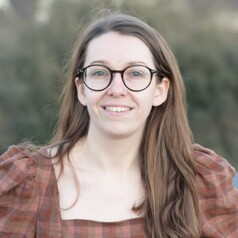
Amy West
PhD Candidate in Dog Cognition, University of Portsmouth
I am a PhD Candidate at the University of Portsmouth, under the supervision of Juliane Kaminski. My research focus is Theory of Mind in Dogs, particularly visual perspective taking abilities. My research interests cover dog cognition and human-dog communication.
Less ![]()

Amy Yau
Senior Lecturer in Marketing, Cardiff University
I am a marketing lecturer at the University of South Wales and a PhD candidate at Newcastle University Business School. My work takes an interdisciplinary approach, looking at consumption through a cultural lens.
I have conducted research in the area of consumer identity tensions through an interpretive, narrative approach. For example, I have studied the role of material objects in inter-generational relationships characterised by excess. My PhD thesis explores consumption during external instability, looking at consumer meaning-making and self-identity transformation processes during an extended economic transition in the context of the post 2008 Greek financial crisis.
Less ![]()

Amy Yau1
Senior Lecturer in Marketing, Cardiff University
Amy Yau is a senior Lecturer in marketing at Cardiff University. She received her PhD from the University of Bath and is a Fellow of the Higher Education Academy. Her research interests involves exploring various aspects of consumer research and socio-cultural marketing through the use of qualitative methods. Current research areas of interest include consumer acculturation and global mobility, the use of social media and AI, creative small businesses and entrepreneurship, and also sustainable consumption.
Less ![]()
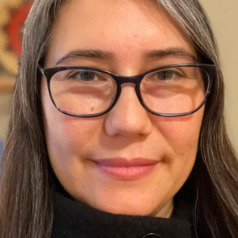
Amy Besaw Medford
Research Affiliate with the Harvard Project on American Indian Economic Development, Harvard Kennedy School
Amy Besaw Medford is a Research Affiliate with the Harvard Project on American Indian Economic Development at the Harvard Kennedy School and an Analyst with the Taylor Policy Group. Previously, she was the Director of Program Development and Director of the Honoring Nations awards program at the Harvard Project and the Manager of Program Development at the Native Nations Institute for Leadership, Management, and Policy at the University of Arizona.
Amy also serves on the board for the Calumet & Cross Heritage Society, which strives to preserve and share Brothertown Indian history and heritage. Amy is enrolled Brothertown Indian and Korean. She received her BA in Business Administration from the University of Washington, MA in Organizational Leadership from Chapman University, and EdM in Human Development and Psychology from the Harvard Graduate School of Education.
Less ![]()

Amy C. Chambers
Senior Lecturer in Film Studies, Manchester Metropolitan University
Amy C. Chambers works in the fields of science communication, science fiction studies, and screen studies. She is particularly interested in the relationship between entertainment media and the public understanding of science.
Less ![]()
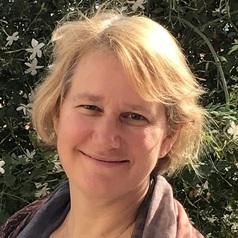
Amy C. Smith
Professor of Classical Archaeology / Curator of the Ure Museum, University of Reading
I research and teach ancient Mediterranean history and archaeology with a focus on Greek art & iconography, myth & religion, gender studies, as well as the history & use of collections, historiography of classical archaeology, and digital classics & museology.
Less ![]()

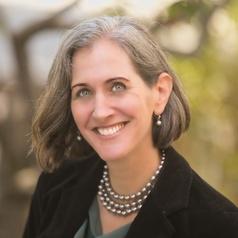
Amy E Lerman
Professor of Political Science & Public Policy and Executive Director, Possibility Lab, University of California, Berkeley
Amy E. Lerman is the Michelle Schwartz Chair and Professor of Public Policy and Political Science at the University of California, Berkeley, and Executive Director of the Possibility Lab at the University of California. Her research is focused on issues of equity, public opinion, and political behavior, especially as they relate to public safety and social inequality in America. Professor Lerman’s scholarship can be found in a wide variety of academic journals and has been featured in numerous media outlets including the New York Times, Washington Post, USA Today, CNN, and NPR.
Professor Lerman is the author of several award-winning books, including work on the American criminal justice system in The Modern Prison Paradox and Arresting Citizenship. Her most recent book, Good Enough for Government Work examines how perceptions of government shape citizens’ attitudes toward privatization and public programs. In addition to her research, Lerman previously served as a speechwriter and communications consultant for national nonprofits and members of the United States Congress, a community organizer in Latin America and Southeast Asia, and an adjunct faculty member of the Prison University Project at San Quentin State Prison. In 2023, Lerman was elected to the American Academy of Arts and Sciences.
Less ![]()
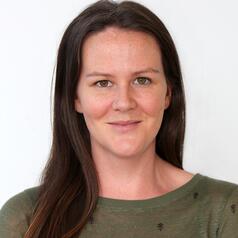
Amy L. Winship
Group Leader and Senior Research Fellow, Anatomy and Developmental Biology, Monash University
Dr Amy Winship is a Rebecca Cooper Foundation Al & Val Rosenstrauss Fellow and Group Leader in reproductive biology at Monash Biomedicine Discovery Institute.
She obtained her PhD in 2016 at the Hudson Institute of Medical Research, defining cytokine functions in the reproductive tract (PNAS 2015, Scientific Reports 2015) and reproductive cancer (Molecular Cancer Therapeutics 2016).
Her recent research has been at the forefront of the fertility preservation field in identifying ovarian toxicity profiles of new-line cancer therapies, including PARP inhibitors and immunotherapies. Immune checkpoint inhibitors (ICIs) have revolutionised cancer therapy – harnessing the patient’s own immune cells to mount an anti-tumour response. Using preclinical models, Dr Winship's research made the ground-breaking discovery that ICIs cause irreversible ovarian damage, raising concerns that people treated with these agents may be at increased risk of infertility and comorbidities related to early menopause (Nature Cancer 2022).
Dr Winship’s current research proposes that uterine protection is the missing link to effective fertility preservation for healthy pregnancy for cancer survivors. Her teams’ analysis of clinical pregnancy outcomes shows survivors experience increased rates of infertility and obstetric complications after cancer therapy, even after using currently available fertility preservation methods, including embryo transfers from cryopreserved or donor oocytes (eggs), unexposed to cancer therapies (Human Reproduction Update 2020). This research has overturned dogma that because of its’ cyclical and regenerative nature, the endometrium – the inner lining of the uterus – does not sustain permanent damage. By designing unique preclinical models (Reproduction & Fertility 2022) and using primary human tissues, we showed the first empirical evidence that radiotherapy causes direct, lasting uterine damage (JCI Insight 2023), leading to new clinical guidelines for patients and clinicians (Human Reproduction Open 2020).
Her other recent research has examined the essential role of DNA repair capacity in regulating quality control of the ovarian germline (Human Reproduction Update 2018). She recently revealed evidence that loss of BRCA1 exacerbates age-related decline in oocyte number and quality. This is important knowledge to support BRCA mutation carriers, who already face higher risks of developing breast and ovarian cancer, to make informed decicions about their fertility (eBioMedicine 2024). In addition, her work uncovered the first evidence for a key role of intrinsic DNA break repair in response to endogenous DNA damage (i.e. resulting from normal cellular processes) to safeguard primordial follicle oocyte number, genetic integrity and reproductive capacity (Human Reproduction 2020).
Less ![]()

Amy Ross Arguedas
Postdoctoral Researcher Fellow, Reuters Institute for the Study of Journalism, University of Oxford, University of Oxford
Amy Ross Arguedas is a Postdoctoral Researcher Fellow at the Reuters Institute for the Study of Journalism. She works on the Trust in News Project.
Amy completed her M.A. and PhD in the Media, Technology, and Society program in the Department of Communication Studies at Northwestern University in 2020. Her dissertation combined a variety of methods (in-depth interviews, online ethnography, content analysis) to examine the production and circulation of information about an emerging medical diagnosis in the news media, social media, clinical practice, and scientific research.
This project incorporated elements from media studies, medical sociology, science and technology studies, and gender studies to make sense of how new medical knowledges are produced in different social worlds. Her master’s thesis analyzed the changing standards of news production in a learning newsroom.
Her research has been published in academic journals such as Journalism, Journalism Practice, Digital Journalism, and Social Science and Medicine. Prior to pursuing her doctorate, Amy worked as a journalist for five years at the Costa Rican newspaper La Nación, where she covered various different beats. Between 2018 and 2020, she also worked as managing editor of Qualitative Sociology.
Less ![]()
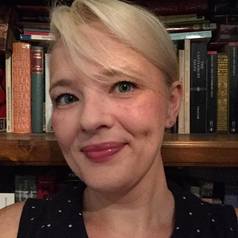
Amy T Matthews
Senior Lecturer, Creative Writing, Flinders University
I have a PhD in Creative Writing, Honours Creative Writing, BA in Communications, Film and Electronic Media, and a BA in History and English
Less ![]()

Amy T. Hsu
Brain and Mind-Bruyère Research Institute Chair in Primary Health Care in Dementia, L’Université d’Ottawa/University of Ottawa
Dr. Amy T. Hsu, Ph.D., is an Investigator at the Bruyère Research Institute and a Lecturer in the Department of Family Medicine at the University of Ottawa. Dr. Hsu holds the University of Ottawa Brain and Mind-Bruyère Research Institute Chair in Primary Health Care in Dementia. Her research uses population-level health administrative and survey data to examine older adults' health and healthcare needs — especially those living with Alzheimer's Disease and dementia and in long-term care. Dr. Hsu led the development of RESPECT (Risk Evaluation for Support: Predictions for Elder-Life in their Communities Tool), which supports earlier identification of palliative care needs in older adults.
Less ![]()

Amy-Leigh Rowe
Postdoctoral Researcher in Mental Health and Substance Use, University of Sydney
Dr Amy-Leigh Rowe is a Research Fellow at the Matilda Centre for Research in Mental Health and Substance Use at the University of Sydney. She holds a Bachelor of Applied Science (Sport & Exercise) from the University of Sydney (2011), a Bachelor of Psychological Studies with first class Honours from Western Sydney University (2018), and a PhD in Psychology from Western Sydney University (2023). Amy’s PhD research explored the relationship between bipolar disorder and trauma, with a specific focus on the complex interplay between lifetime trauma, stressful life events, and social support, in the experience of illness and recovery. Amy's current research focuses on the development, evaluation, and taking to scale, of preventive eHealth interventions for young people. Amy is coordinating the OurFutures Vaping Study, which is a large multi-site RCT (40 schools across NSW, QLD, and WA) and the first rigorous evaluation of a school-based e-cigarette prevention program in Australia. Amy is also the lead consultant for the NSW Ministry of Health in the development of their next health and well-being policy for young people. Additionally, Amy co-leads the development of a new eHealth module focused on healthy relationship and consent education for secondary school students.
Less ![]()
- Market Data























